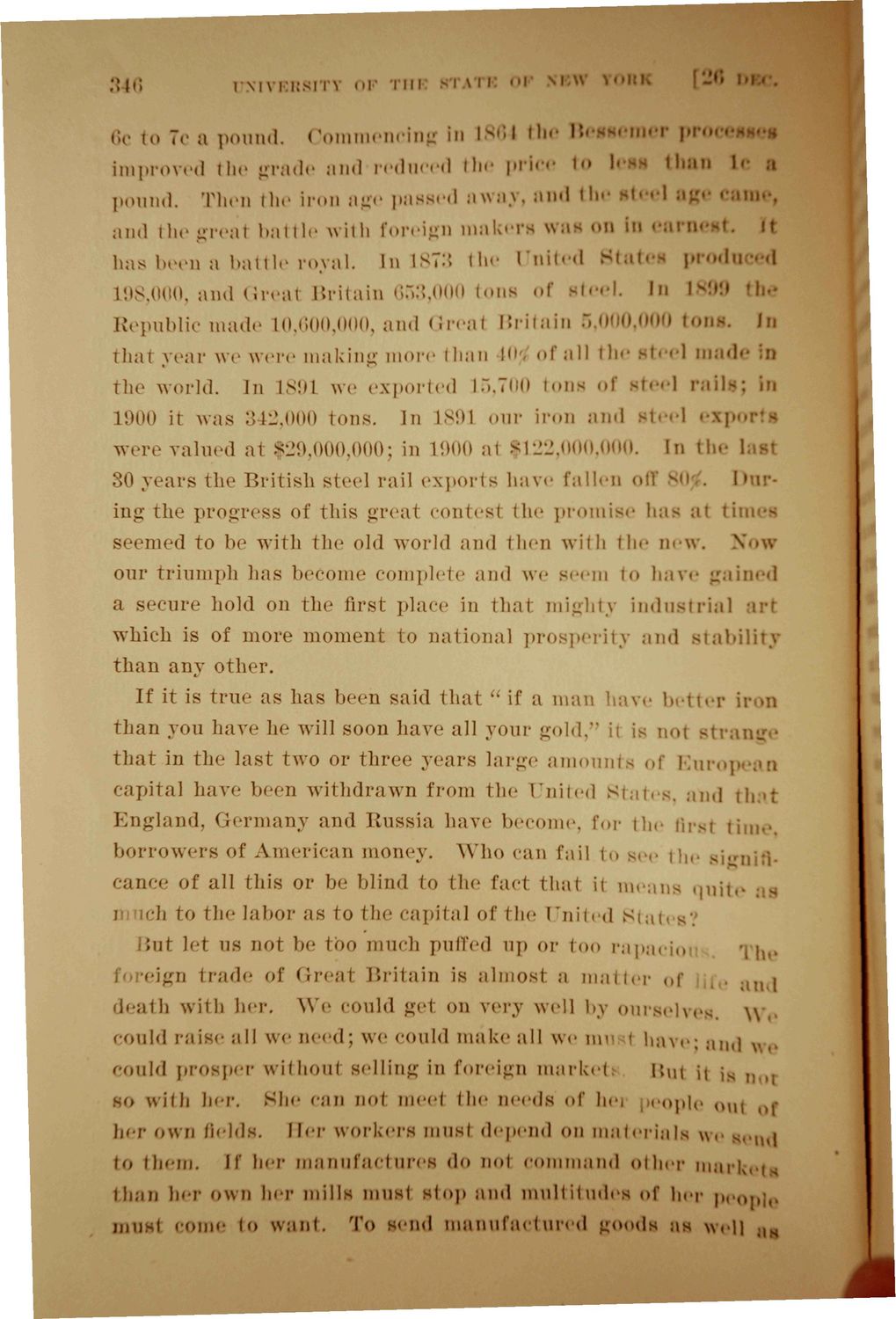| |
| |
Caption: Booklet - Element of Inspiration in the Schools (1902)
This is a reduced-resolution page image for fast online browsing.

EXTRACTED TEXT FROM PAGE:
::iu i \i\ IKSI i j OF i MI \ 11 •'! :l - (- ,; '" c to 7c Q pound. Commenein in I i ''"• H I" impro\ 1 the grade and red in d Hie prl i 1 M n l« pound. Then the iron age pni d IIWOJ ind tli I and tin great battle with forei n makers n on in n has b u a battle royal. In 1873 the United Stal pi ID i 198,1 -). and Greal Britain 000 tons of l" I"' ' 'I Republic made 10,600,000, and Gi ai Britain tons, h thatvearw w re making more than M of all tini in il: world. In 1891 we exported 15,700 tons ol -: 1900 it was 342,000 tons. In L891 our iron and were valued ;u 829,000,000; in L900 al 81 L'2,000,000. In tl I is M years the British steel rail exports hai fallen off 0 ing the progress of this greal contesl the promi i 111 seemed to lie with the old world and then with the new, \ " our triumph has become complete and we E m I I p in i a secure hold on the first place in that mighty in 1 which is of more moment to national pro perity and si 11 1 t h a n any other. If it is t r u e as has been said t h a t " if a man 1. 1 t t e r il •: t h a n you have lie will soon have all your gold," il is no sti ; That in the last two or three years large amount l apital have been withdrawn from the United Stal I England, Germany and Russia have become, \'i)\- the fl si tim borrowers of American money. Who can fail to the sitri an- of all this or be blind to the fad thai i1 means quite li to the labor as to the capital of the [Jnit< d Stal ;nf lei us not be tbo much puffed up or too rapacio h, eign trade of Great Britain is almosl a matter of , i leath with her. We could gel on very well by oui Ives \\ oiId rai all we need; we could make all we mi t ha> ' and w < uiid prosper withoul selling in foreign marketi Bu1 il no« o with her. She can aol meel the needs of hei \u ( ,i r n | | | her own fields. Her workers musl depend on materials w M\ to them. If her manufactures do no1 command other mark a than her own her mills musl slop and multitudes of her p < jjjij i come to want. To send manufactured goods as well ai
| |